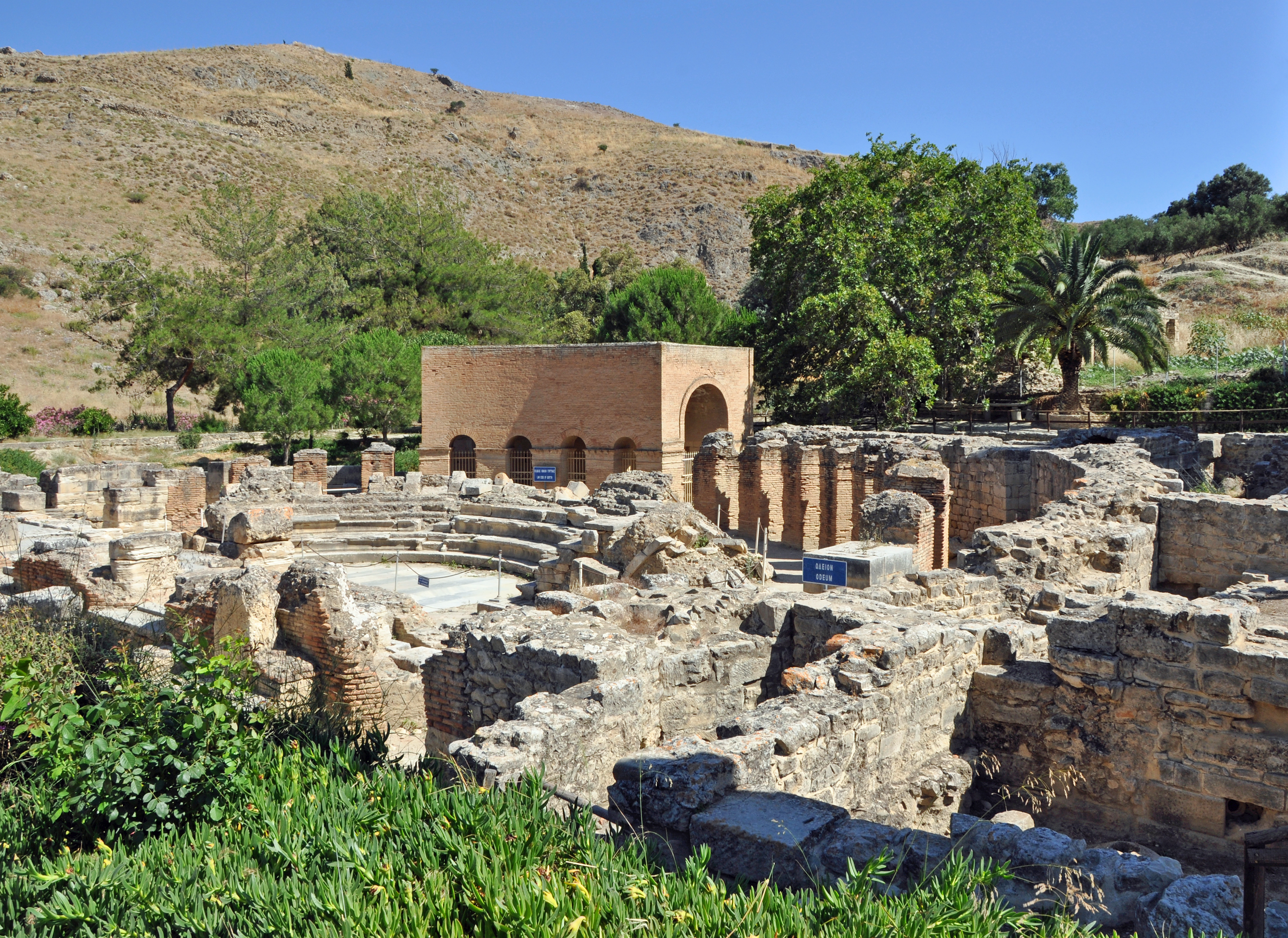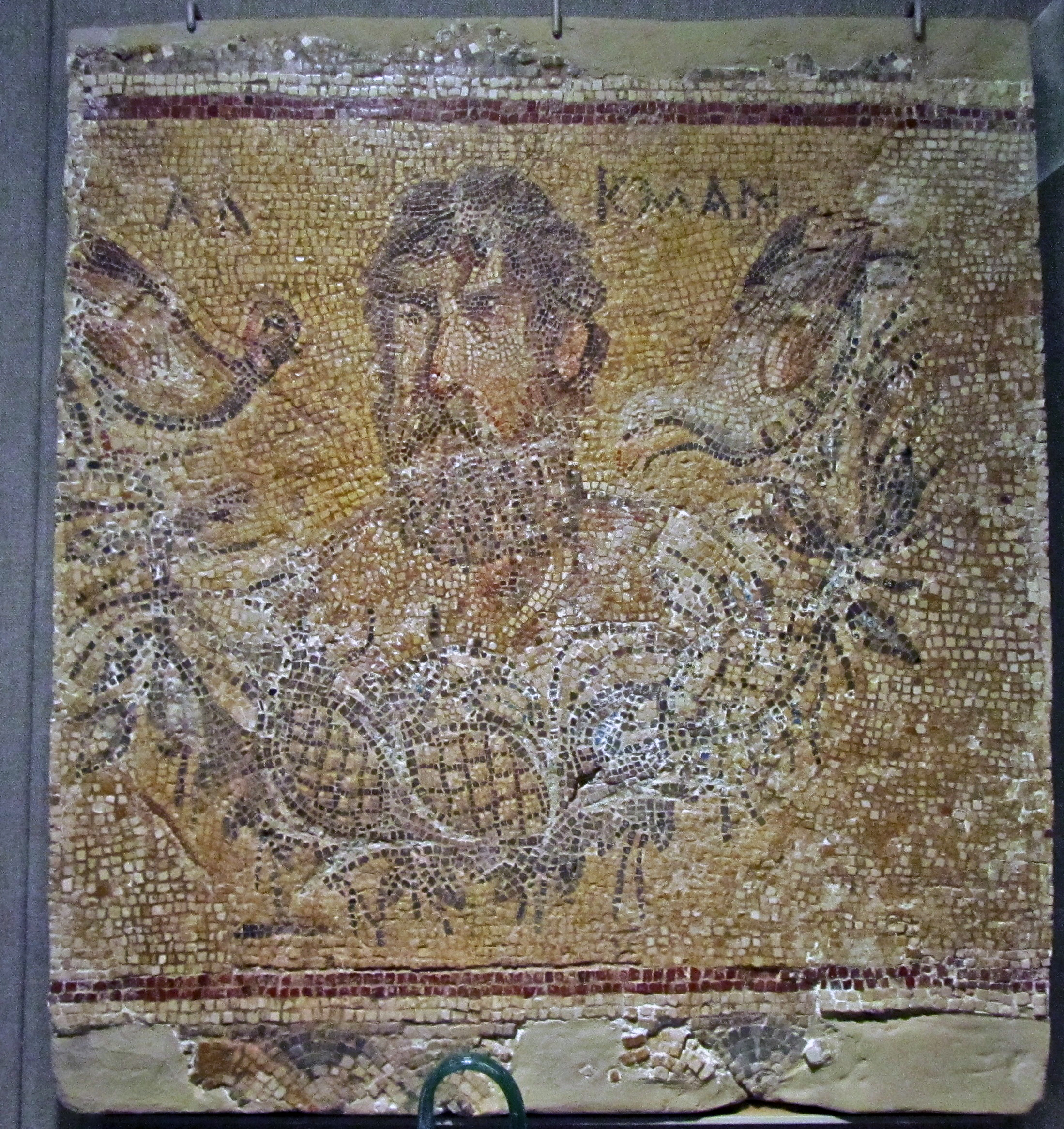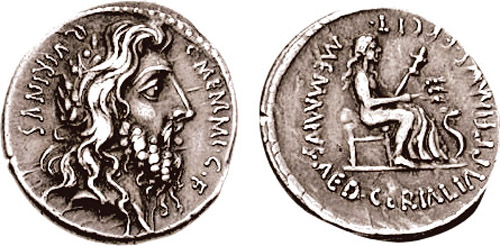|
Thaletas
Thaletas or Thales of Crete (Greek: Θαλῆς or Θαλήτας) was an early Greek musician and lyric poet. Biography Historicity The position of Thaletas is one of the most interesting, and at the same time most difficult points, in that most interesting and difficult subject, the early history of Greek music and poetry. The most certain fact known of him is that he introduced from Crete into Sparta certain principles or elements of music and rhythm, which did not exist in Terpander's system, and thereby founded the second of the musical schools which flourished at Sparta. He was a native of Crete, and, according to the best writers, of the city of Gortyna. In Sparta In compliance, according to tradition, with an invitation which the Spartans sent to him in obedience to an oracle, he removed to Sparta, where, by the sacred character of his paeans, and the humanizing influence of his music, he appeased the wrath of Apollo, who had visited the city with a plague, and compo ... [...More Info...] [...Related Items...] OR: [Wikipedia] [Google] [Baidu] |
Gortys
Gortyna ( grc, Γόρτυνα; also known as Gortyn (Γορτύν)) was a town of ancient Crete which appears in the Homeric poems under the form of Γορτύν; but afterwards became usually Gortyna (Γόρτυνα). According to Stephanus of Byzantium it was originally called Larissa (Λάρισσα) and Cremnia or Kremnia (Κρήμνια). History This important city was next to Cnossus in importance and splendour; in early times these two great towns had entered into a league which enabled them to reduce the whole of Crete under their power; in after-times when dissensions arose among them they were engaged in continual hostilities. It was originally of very considerable size, since Strabo reckons its circuit at 50 stadia; but when he wrote it was very much diminished. He adds that Ptolemy Philopator had begun to enclose it with fresh walls; but the work was not carried on for more than 8 stadia. In the Peloponnesian War, Gortyna seems to have had relations with Athens. In ... [...More Info...] [...Related Items...] OR: [Wikipedia] [Google] [Baidu] |
Alcman
Alcman (; grc-gre, Ἀλκμάν ''Alkmán''; fl. 7th century BC) was an Ancient Greek choral lyric poet from Sparta. He is the earliest representative of the Alexandrian canon of the Nine Lyric Poets. Biography Alcman's dates are uncertain, but he was probably active in the late seventh century BC. The name of his mother is not known; his father may have been called either Damas or Titarus. Alcman's nationality was disputed even in antiquity. Unfortunately, the records of the ancient authors were often deduced from biographic readings of their poetry, and the details are often untrustworthy. Antipater of Thessalonica wrote that poets have "many mothers" and that the continents of Europe and Asia both claimed Alcman as their son. Frequently assumed to have been born in Sardis, capital of ancient Lydia, the Suda claims that Alcman was actually a Laconian from Messoa. The compositeness of his dialect may have helped to maintain the uncertainty of his origins, but the ... [...More Info...] [...Related Items...] OR: [Wikipedia] [Google] [Baidu] |
Elyrus
Elyrus or Elyros ( grc, Ἔλυρος) was a town of ancient Crete, which the ''Periplus of Pseudo-Scylax'' places between Cydonia and Lissus. It had a harbour, Syia (Συΐα), situated on the south coast of the island, 60 stadia west of Poecilassus.''Stadiasmus Maris Magni'', p. 299 ed. Hoffmann Pausanias states that the city existed in his time in the mountains of Crete. He adds that he had seen at Delphi the bronze goat which the Elyrians had dedicated, and which was represented in the act of giving suckle to Phylacis and Phylander, children of Apollo and the nymph Acacallis, whose love had been won by the youthful god at the house of Casmanor at Tarrha. It was the birthplace of Thaletas, who was considered as the inventor of the Cretic rhythm, the national paeans and songs, with many of the institutions of his country. Elyrus appears in Hierocles' list of Cretan cities, then reduced in number to twenty-one. The coins of this city have the type of a bee upon them. Its site ... [...More Info...] [...Related Items...] OR: [Wikipedia] [Google] [Baidu] |
Aristotle
Aristotle (; grc-gre, Ἀριστοτέλης ''Aristotélēs'', ; 384–322 BC) was a Greek philosopher and polymath during the Classical period in Ancient Greece. Taught by Plato, he was the founder of the Peripatetic school of philosophy within the Lyceum and the wider Aristotelian tradition. His writings cover many subjects including physics, biology, zoology, metaphysics, logic, ethics, aesthetics, poetry, theatre, music, rhetoric, psychology, linguistics, economics, politics, meteorology, geology, and government. Aristotle provided a complex synthesis of the various philosophies existing prior to him. It was above all from his teachings that the West inherited its intellectual lexicon, as well as problems and methods of inquiry. As a result, his philosophy has exerted a unique influence on almost every form of knowledge in the West and it continues to be a subject of contemporary philosophical discussion. Little is known about his life. Aristotle was born in th ... [...More Info...] [...Related Items...] OR: [Wikipedia] [Google] [Baidu] |
Plutarch
Plutarch (; grc-gre, Πλούταρχος, ''Ploútarchos''; ; – after AD 119) was a Greek Middle Platonist philosopher, historian, biographer, essayist, and priest at the Temple of Apollo in Delphi. He is known primarily for his ''Parallel Lives'', a series of biographies of illustrious Greeks and Romans, and ''Moralia'', a collection of essays and speeches. Upon becoming a Roman citizen, he was possibly named Lucius Mestrius Plutarchus (). Life Early life Plutarch was born to a prominent family in the small town of Chaeronea, about east of Delphi, in the Greek region of Boeotia. His family was long established in the town; his father was named Autobulus and his grandfather was named Lamprias. His name is derived from Pluto (πλοῦτον), an epithet of Hades, and Archos (ἀρχός) meaning "Master", the whole name meaning something like "Whose master is Pluto". His brothers, Timon and Lamprias, are frequently mentioned in his essays and dialogues, which ... [...More Info...] [...Related Items...] OR: [Wikipedia] [Google] [Baidu] |
Lacedaemonians
Sparta (Doric Greek: Σπάρτα, ''Spártā''; Attic Greek: Σπάρτη, ''Spártē'') was a prominent city-state in Laconia, in ancient Greece. In antiquity, the city-state was known as Lacedaemon (, ), while the name Sparta referred to its main settlement on the banks of the Eurotas River in Laconia, in south-eastern Peloponnese. Around 650 BC, it rose to become the dominant military land-power in ancient Greece. Given its military pre-eminence, Sparta was recognized as the leading force of the unified Greek military during the Greco-Persian Wars, in rivalry with the rising naval power of Athens. Sparta was the principal enemy of Athens during the Peloponnesian War (431–404 BC), from which it emerged victorious after the Battle of Aegospotami. The decisive Battle of Leuctra in 371 BC ended the Spartan hegemony, although the city-state maintained its political independence until its forced integration into the Achaean League in 192 BC. The city nevertheless rec ... [...More Info...] [...Related Items...] OR: [Wikipedia] [Google] [Baidu] |
Polymnestus
In ancient Greece, Polymnestus was, with Phronime, the father of Battus I of Cyrene Battus I of Cyrene ( grc, Βάττος), also known as Battius the Lacedaemonian and Battus Aristotle (Βάττος Ἀριστοτέλης) and Aristaeus (Ἀρισταῖος) was the founder of the Ancient Greek colony of Cyrene. He was its fi .... References 7th-century BC Greek people {{AncientGreece-bio-stub ... [...More Info...] [...Related Items...] OR: [Wikipedia] [Google] [Baidu] |
Archilochus
Archilochus (; grc-gre, Ἀρχίλοχος ''Arkhilokhos''; c. 680 – c. 645 BC) was a Greek lyric poet of the Archaic period from the island of Paros. He is celebrated for his versatile and innovative use of poetic meters, and is the earliest known Greek author to compose almost entirely on the theme of his own emotions and experiences. Biography A considerable amount of information about the life of Archilochus has come down to the modern age via his surviving work, the testimony of other authors, and inscriptions on monuments, yet it all needs to be viewed with caution – the biographical tradition is generally unreliable and the fragmentary nature of the poems does not really support inferences about his personal history. The vivid language and intimate details of the poems often look autobiographical yet it is known, on the authority of Aristotle, that Archilochus sometimes role-played. The philosopher quoted two fragments as examples of an author speaking in somebo ... [...More Info...] [...Related Items...] OR: [Wikipedia] [Google] [Baidu] |
Romulus
Romulus () was the legendary foundation of Rome, founder and King of Rome, first king of Ancient Rome, Rome. Various traditions attribute the establishment of many of Rome's oldest legal, political, religious, and social institutions to Romulus and his contemporaries. Although many of these traditions incorporate elements of folklore, and it is not clear to what extent a historical figure underlies the mythical Romulus, the events and institutions ascribed to him were central to the myths surrounding Rome's origins and cultural traditions. Traditional account The myths concerning Romulus involve several distinct episodes and figures, including the miraculous birth and youth of Romulus and his twin brother, Remus; Remus' murder and the founding of Rome; the Rape of the Sabine Women, and the subsequent war with the Sabines; a period of joint rule with Titus Tatius; the establishment of various Roman institutions; the death or apotheosis of Romulus, and the succession of Numa Pompil ... [...More Info...] [...Related Items...] OR: [Wikipedia] [Google] [Baidu] |
Thales Of Miletus
Thales of Miletus ( ; grc-gre, Θαλῆς; ) was a Greek mathematician, astronomer, statesman, and pre-Socratic philosopher from Miletus in Ionia, Asia Minor. He was one of the Seven Sages of Greece. Many, most notably Aristotle, regarded him as the first philosopher in the Greek tradition, and he is otherwise historically recognized as the first individual known to have entertained and engaged in scientific philosophy.Frank N. Magill''The Ancient World: Dictionary of World Biography'', Volume 1 Routledge, 2003 He is often referred to as the Father of Science. Thales is recognized for breaking from the use of mythology to explain the world and the universe, instead explaining natural objects and phenomena by offering naturalistic theories and hypotheses. Almost all the other pre-Socratic philosophers followed him in explaining nature as deriving from a unity of everything based on the existence of a single ultimate substance instead of using mythological explanations. Ar ... [...More Info...] [...Related Items...] OR: [Wikipedia] [Google] [Baidu] |
Nomos (music)
The nomos ( el, νόμος), also nome, is a genre of ancient Greek music, either solo instrumental or for voice accompanied by an instrument, characterized by a style of great complexity. It came to be associated with virtuoso performers. Although it designates a specific, nameable melody, it is unclear just how fixed it might have been in detail. Most likely, each performer was given some freedom to vary and interpret the melody, using musical phrases and gestures that would change from one performance to another. Etymology The root sense of the Greek word νόμος is "that which is in habitual practice, use or possession"; its specific musical sense is "melody, strain". In the particular application to these melody types called ''nomoi'', it may be translated as "set piece". Types There are four types of ''nomoi'', two vocal and two purely instrumental: # Kitharoedic nomoi, the earliest type, sung to the accompaniment of a kithara, associated with Terpander of Sparta (early s ... [...More Info...] [...Related Items...] OR: [Wikipedia] [Google] [Baidu] |








